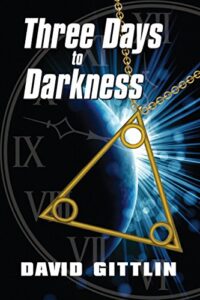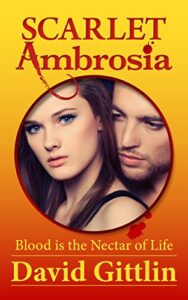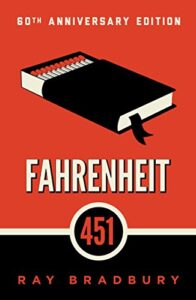Micromium: Clean Energy from Mars received a 4+ star review, making it an IndieReader Approved title.
Following find an interview with author David Gittlin.
What is the name of the book and when was it published?
Micromium: Clean Energy from Mars. The book was published March 6, 2018.
What’s the book’s first line?
“This is trial eighteen,” Kate Blackstone announced. “Testing five one hundredths kilogram of enriched X435.”
What’s the book about? Give us the “pitch”.
The year is 2038. Earth’s biosphere is on the brink of destruction from the effects of global warming and pollution. The World Energy Council has awarded a lucrative contract to a major US corporation to mine a precious ore discovered by the first manned mission to land on Mars. One kilo of Micromium can power a large city for a year without environmental side effects. A few grains of the ore can fuel a car for a year or longer. Micromium promises to provide clean energy to a thirsty planet far into the future.
When two people die in a mining accident on Mars, the World Energy Council sends Commander Logan Marchant and a crack team of astronaut specialists to investigate.
Confronted with a lack of cooperation from the mining colonists, the investigation is further complicated by Logan’s growing attraction to the team’s beautiful and brainy geologist. While tensions and tempers rise, Logan and the audit team make one shocking discovery after another, until the investigation leads them into mortal danger, and ultimately, to a surprising conclusion.
What inspired you to write the book? A particular person? An event?
Micromium started with a dream I had of a glowing chunk of ore discovered by astronauts exploring a comet. The idea of a pure, miraculous new energy source excited me. I am somewhat surprised by the story that eventually developed from the idea.
What’s the main reason someone should really read this book?
I wrote the book for someone like you. I want you to have a good time and I want to inform you. It’s a good book. You’ll like it. Trust me.
What’s the most distinctive thing about the main character? Who-real or fictional-would you say the character reminds you of?
Commander Logan Marchant has survived the tragic loss of his beloved mother in early childhood and an emotionally abusive relationship with his father. Despite these hardships, he has ascended to high rank in the Air Force and the NASA space program. When Logan meets Kate Blackstone, a brilliant and talented member of his audit team, he is forced to confront the deadly pit of darkness and emptiness that has threatened to consume him for as long as he can remember.
Logan reminds me of a number of successful people, Hollywood “A” list actors in particular, who suffer and often self-destruct as a result of a bottomless pit of loneliness, insecurity, hopelessness and despair. Their suffering usually stems from the trauma of abuse and/or inadequate childhood nurturing.
If they made your book into a movie, who would you like to see play the main character(s)?
I’d like to see Chris Evans play Logan Marchant and Kate Beckinsale play Kate Blackstone.
When did you first decide to become an author?
I began writing short stories in my early forties. I decided to become an author of long fiction when I turned fifty years old. I figured (and still do) fiction writing was something I could do for the rest of my life. My writing “arc” started with copy writing and all manner of marketing communications, to short stories, screenplays, and eventually novels.
Is this the first book you’ve written?
No. My first novel, Three Days to Darkness,” is a science fantasy. My second novel, Scarlet Ambrosia, is a paranormal romance/thriller.
What do you do for work when you’re not writing?
Writing is my work. I don’t have a real job anymore (thank God!).
How much time do you generally spend on your writing?
Two to four hours per day depending upon outside distractions and daily responsibilities.
What’s the best and the hardest part of being an indie?
The best part of being an Indie Author is not having a commercial publisher breathing down my neck with deadlines and suggestions as to what I should write next or rejecting a book proposal that I am enthusiastic about writing. The hardest part is the difficulty of getting books in stores and making my books “discoverable.”
What’s a great piece of advice that you can share with fellow indie authors?
Learn the basics of creating compelling characters and plots from established, professional writers. Learn how to create scenes packed with conflict and drama that move the story forward while capturing your reader’s attention.
Would you go traditional if a publisher came calling? If so, why?
It would depend upon the publisher which came calling. If a major publisher came forward, I’d have to go with them because I want my books to reach as many people as possible. Also, having a traditional publisher helps enormously with media placement and reviews in widely read newspapers and magazines.
Is there something in particular that motivates you?
It’s fun to create and live in imaginary worlds populated by characters that become like a family to me. Above and beyond this, I want to communicate a central theme that I am passionate about that I feel will have universal appeal.
Which book do you wish you could have written?
Fahrenheit 451 by Ray Bradbury.





